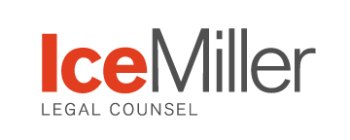The United States Congress revived the age-old tradition of passing a lame-duck Christmas Tree appropriations bill to fund the government and provide a second wave of much-needed COVID-19 relief legislation.[1] The nearly 5,600-page bill includes temporary alterations to the Bankruptcy Code to help those affected by the COVID-19 crisis. Among those temporary alterations:
- The bill resolves the controversy as to whether debtors in bankruptcy are eligible to obtain loans under the Paycheck Protection Program (a “PPP loan”) established by the initial COVID relief bill this past spring.
- The bill amends the Bankruptcy Code to allow debtors to seek bankruptcy court authorization to obtain a PPP loan on an expedited schedule.
- The bill voids contractual provisions and applicable non-bankruptcy law that prohibit a debtor from incurring additional debt with respect to PPP loans.
- PPP loans obtained after a bankruptcy filing are entitled to administrative payment priority. Administrative claims typically must be paid in full promptly following confirmation of a plan under chapter 11 of the Bankruptcy Code. However, the bill allows small business debtors under new subchapter V of chapter 11, family farmers and fishermen under chapter 12, and individuals filing chapter 13 plans to repay the loans over time according to the terms of the loan.
- The bill prohibits lenders from discriminating against debtors in bankruptcy when making PPP loans.
- Recovery rebates are excluded from property of the bankruptcy estate.
- Chapter 13 debtors may obtain a discharge on a residential mortgage at the conclusion of their plan, even if they missed up to three mortgage payments (provided the missed payments were caused by the COVID-19 crisis).
- Bankruptcy courts are now authorized to grant subchapter V small business debtors additional time to satisfy post-petition rent obligations in connection with unexpired leases of nonresidential property if the debtor is experiencing material financial hardship due to the COVID-19 crisis. Ordinarily, debtors are given 60 days of breathing room after filing a bankruptcy petition before they must resume paying nonresidential rent obligations in a timely manner. The bill allows bankruptcy courts to extend the 60-day period to 120 days. Debtors that receive this extraordinary relief may also repay the delayed administrative rent over time in accordance with their subchapter V plan, rather than repay it in full upon plan confirmation.
- Certain late rent and vendor payments made in accordance with forbearance agreements that debtors executed with landlords or vendors after March 13, 2020, for amounts due before March 13, 2020, are now exempt from preference avoidance. However, late charges and interest payments remain subject to avoidance as preferences if they are more than a debtor would have incurred if the debtor had made all of its payments in a timely manner.
- Utility companies are prohibited from terminating service for individual debtors who cannot provide adequate assurance of payment if the debtor comes current on his or her debt to the utility company during the first 20 days of the bankruptcy case and remains current thereafter.
All of these modifications to the Bankruptcy Code sunset after one year, except for the provisions related to PPP loans, lease payments by subchapter V debtors, and preference avoidance, which will sunset after two years but continue to apply to all cases filed before the second anniversary of the enactment of the bill.





